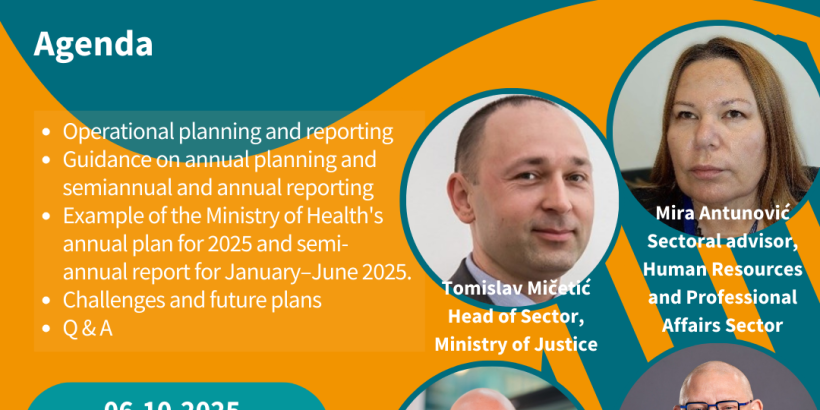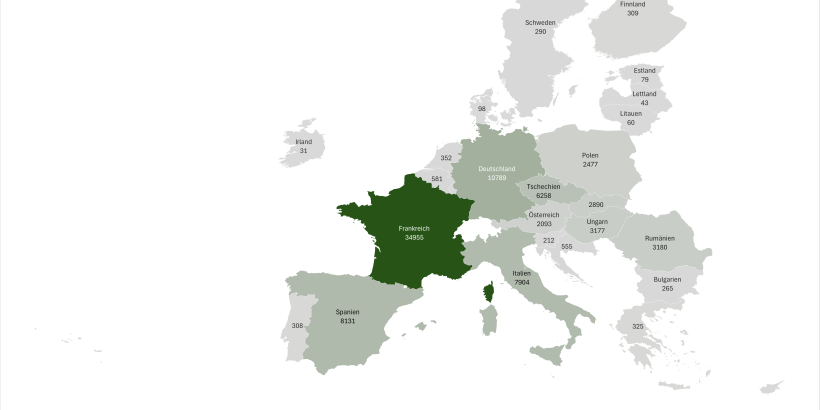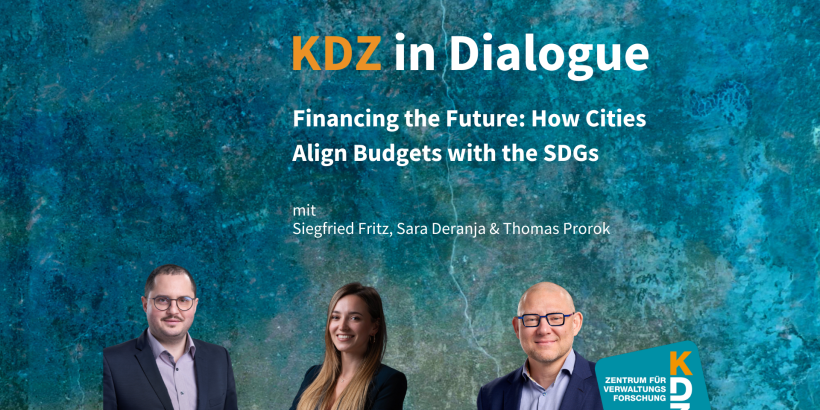

The 20th anniversary of the Common Assessment Framework
The 17th of February 2021 brought together CAF experts, academia and all persons interested in the field of quality and change management in public sector in the first Digital CAF Forum to celebrate the 20th birthday of CAF.
On this occasion, we considered a special birthday present and dedicated the new book "Transforming Public Administration with CAF" to the Common Assessment Framework. A total of 587 participants from more than 50 countries attended the CAF Digital Forum.
The first keynote "CAF 2020 – the six key areas for transforming public administration" demonstrated how the CAF has evolved over the years from a pure quality management model to a comprehensive management system and change tool for public administrations. CAF 2020 supports the public sector to meet the "new" major challenges in the areas of digitalization, sustainability, agility, innovation, diversity and collaboration and presents concrete guidelines for action.
30 speakers in 17 sessions and 12 booths gave insights into CAF practice
In the subsequent Meet the Authors Sessions, the participants were able to get first-hand practical information from authors of the CAF book around the CAF. The different CAF approaches were discussed from different angles with a special focus on the impacts of the CAF implementation.
It could be shown how CAF improved the communication culture in the city of Krakow both internally between departments and the employees as well as externally to the citizens and customers.
Leadership is a fundamental element of successful change projects was another focus. CAF can be a central driver in leadership development and the transformation from bureaucratic structures to agile and innovative administrative cultures.
Furthermore it was impressive to learn how CAF is used in Finnish municipalities as an instrument of peer learning within the framework of external audits and how it provides an important foundation for thinking beyond administrative boundaries and "out of the box".
CAF is also applicable to drive towards quality and change in the judicial authorities in Italy and Austria. Within this initiative the CAF questionnaire could be adopted to the specific requirements of public prosecution offices which served as a catalyst for many improvement projects and exchange of best-practices among CAF implementing organisations.
In addition, Cabo Verde has improved the economic environment in the country with the help of CAF. Eight organizations of different sectors worked with CAF to improve the economic environment and cooperation between key actors across all levels of local government.
CAF works in the educational sector. The University of Lisbon (ISCSP) implemented with CAF the TQM approach and developed specific measures to foster a culture of quality assurance in its areas of activity.
How CAF can be integrated into comprehensive change programs could be demonstrated by the example of the City of Vienna. A tailor-made integrated quality management system has been developed in which CAF plays a central and unifying role alongside other QM systems (EFQM, ISO).
Furthermore CAF contributes to the Public Administration Reform Programs of the countries of Western Balkan. This is an important step towards “rule of law”, better services for the citizens, transparency and competences in public sector organizations. Therefore CAF is a driver for European Integration of the Region. The CAF Centre of KDZ together with the Regional School of Public Administration (ReSPA) implemented CAF programs in 15 ministries, agencies and municipalities through the BACID II program.
The Future of CAF
A highlight of the Digital CAF Forum was the keynote by Prof. Geert Bouckaert (Public Governance Institute, KU Leuven) – "The Future of CAF for the Future of Public Governance". In his speech, Prof. Bouckaert drew the future development lines for CAF 2020+ as leverage for effective public governance. CAF needs to move forward towards effective policy making, from the performance view to the impact of public actions on citizens and organizations, from “Risk” to “risk and uncertainty” as well as to become a tool for effective public governance with the core values of effectiveness, accountability and inclusion.
„We believe in CAF but we need action. Not all EU countries yet use CAF.” (Thomas Prorok)
Further joint efforts are needed to ensure and strengthen the position CAF as an effective tool for public administration reform, quality and change in the public sector. Thomas Prorok presented with "Eleven ideas for the future of CAF" how to make CAF sustainable for the future. He stated following key-messages and strategic fields of action to empower CAF as No1 quality and change tool for the public sector:
- Opening CAF for academia and stakeholders
- Sustainable business model for CAF
- Clear Roles for the European CAF Network
- De-bureaucratisation of the CAF
- Re-design of the Effective CAF User Label
- Digitalize the CAF
- Develop CAF towards Public Governance
An inspiring day ended with a backpack full of ideas, contacts and visions of how CAF can and will evolve.
Additional information:
The full #CAFCON21 documentation with all presentations is available here.
Order "Transforming Public Administration with CAF" here.



